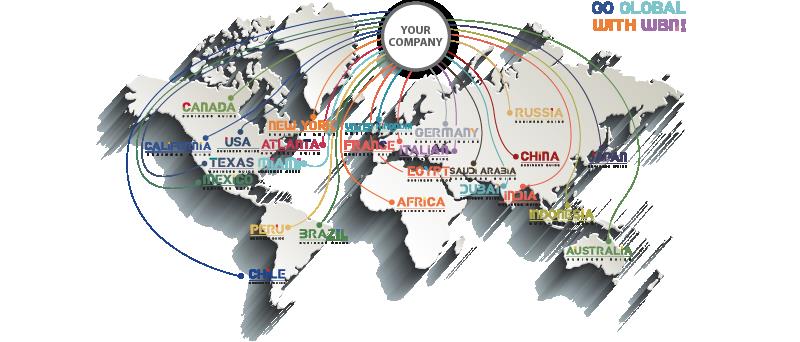What Color is Your Market?

Markets across the world and throughout history are known to have shady characters. Like in the days when old town peddlers came through peddling their medicines and novelties, modern society needs to be on alert.
The current pandemic has aroused fear where hoarding continues. But have shoppers overlooked safety and quality? No time than the present for producers to cut corners. But wouldn’t companies face product returns?
Yes, in the fastpast. But these are s l o w t i m e s. Who wants to wait in a long line to buy a product only to come back and stand in line again to return it? Sure, the market will be happy to honor “manufacturers’ money back guarantee.” 🙂
BLACK MARKETS especially for the high priced or top brand items are the most susceptible. Pharmaceuticals and medical devices cross air, oceans and roads. Import/export opens the lines of counterfeit and pirated products. It’s a convenient two way street. But unlike the roads, maritime law opens waves of opportunities for “ships sailing in the night.” Or, you can cautiously fly the unfriendly skies circumventing surveilled air space.
GREY MARKETS can be seen where warnings will magnify concerns for some items. Is your local market having problems with returns? Are they labeling the product with stickers that caution you about product “not for resale”? Stores taking these cautious measures are likely a response to a recycling of the pirated items through legal channels. Given the current economic instability, underground markets are sure to profit.
SHADOW MARKETS run counter to the traditional development of a name brand image. Branding may have promoted large companies and profits. Yet, there are some retailers that operate in a quasi-fashion, a “shadow market.”
The strategy here, whether by design or adapting to new markets, is to build a recognized home brand name and once having established itself, the company globalizes and repackages unknown vendor products under their brand name. Picture little fishes swimming alongside a big whale.
Key selling point is that the customer saves. As a blind trust emerges where most customers ignore that the products come from unknown vendors from unknown countries. The few that question the products need to speak to the “big whale” only to find out that vendor information is “CONfidential.” Template can easily be applied to other sectors like technology.
Palantir CEO and Co-founder Alexander Karp may relate to working in the shadows as his company is described as “a secretive data-mining startup that received early funding from CIA investment arm In-Q-Tel to a Silicon Valley giant that does contract work for the world’s largest government agencies, banks and corporations.” Palantir’s business is data analytics. Purpose?
In an interview Tuesday, May 26th, Karp stated, “Our products are used for targets of all kinds.” Interesting. As a private citizen, I can think of many ways to mine the public’s data. As CEO of a bank there are countless data I could derive from customers spending habits. Corporations of all kinds would find the data of the social and behavior of consumers profitable. Now, as a user with targets on your back what will you do?
Apple CEO Tim Cook stated, “Here’s what we do today. The iPhone is really not made anywhere. It’s made everywhere. That’s the truth.” Why the need to say it’s “the truth”? Let’s apply his business philosophy to other sectors, say a vehicle. Ads for vehicles do not typically say the vehicle is “made everywhere.”
Let’s take for example the German vehicle, Mercedes-Benz. Reputed to be well-engineered, I expect to find German engine parts. But a vehicle is made up of many parts and if it’s a high-end luxury model, one may expect to find fine leather seats, high-end stereo and speakers, etc. Depending on vehicle and model, parts may or may not be from one country alone.
Working at the City of Newport Beach, California, I came across the owner of the well-known Fletcher Jones Motorcars. I do not recall the Mercedes-Benz vehicles described as “really not made anywhere. It’s made everywhere. That’s the truth.” Why? I imagine the owner did not need to. The reputation of Fletcher Jones and Mercedes-Benz vehicles precedes them.
Now back to Mr. Cook. Would Mr. Cook be comfortable hearing from his Chef that the salad and wine he ordered “is really not made anywhere. It’s made everywhere. That’s the truth.” Think about it. Have you ever asked a waitress to inquire as to what vendors the restaurant contracts with? Perhaps not, but what about those integrated into the “nuts and bolts” of your network equipment?
It’s opportunistic on the side of media social and advertising companies who profit from user data and “fake news” and hypocritical on the side of government who frown on users providing fake personal data. Ironically, operating in the shadows appears to be the best weapon for users and businesses to elude or deter security and privacy breaches.
As media social companies and tech companies have positioned themselves in the clouds of online learning and telemedicine, why not take a cue from Mr. Cook? Is your response to request for personal data, “I’m providing data that is from anywhere and everywhere, that’s the truth.” 🙂
Green, Quick, and Dirty
The Green market is an “open source” market, all its own. A rise of new third party vendors and shoppers in all market spaces has resurfaced in the guise of “green” and quick, never mind the dirty product and now possibly contagious shopper.
The market of marketing products as “environmentally friendly” can be seen across various industries especially technology, vehicles and household products. The use of the word “smart” is ubiquitous. However, its pervasiveness comes second to plastic.
Although there are many examples, one stood out, “Bottle made of 100% ocean bound plastic. In partnership with plastic bank.” The question is, other than household products, is the plastic used for bottled water from plastic waste? Think about that the next you take a drink.
Users sold on used products as being “environmentally friendly” has risen in part by a generation that buys old/used whether by choice or necessity. Ecommerce has facilitated the sale of both these new and used products.
Gigantic online companies resembling markets where buyers and sellers would physically meet to swap goods are transforming online shopping from “flea infested” to virus contaminated markets renewing the term “buyer beware.”
To be fair, in the last decade market aisles labeled some food products with warnings that items may be “exposed to cancer causing chemicals.” In fact, large chain stores have been known to have on their receipts, “Some furniture products can expose you to chemicals known to the State of CA to cause cancer…” Some coffee shops have posted similar warnings.
Problem for online buyers paying for new but receiving used or wrong product was inevitable especially when some ecommerce platforms contracted with suspect third party vendors. As with other online platforms, the victims of perpetrators have little to no options.
In a virtual world there is no certainty of “death and taxes.” Tax Codes can be rewritten or not into these spaces. Like playing the market, you could rearrange your holdings from state to state, take in profit in one pocket and pay out from the other, minimizing disclosure shielding your transactions by “skirting” your pants. Thanks to online business structure and algorithms, companies can set up APIs and avoid the IRS.
Convenience of online shopping can be costly no matter the delivery being “free.” Why? The “Taxman” commeth and goeth empty handed. Less local, state, and federal taxes means less public funding for essential public agencies (police, fire, public works, social security, etc.).
Gig economy is nothing to giggle about for some. In a sharing economy people are now concerned about contracting the COV-19 virus when setting foot in a strangers’ car. Yet, for years they continued to put themselves at risk amidst reports of riders being raped and murdered. It appears a virus is not the only thing out there that will kill you.
Online shoppers may find the current lockdown advantageous but depending on the company you work for it may be unnecessarily stressful and dangerous, as some “personal shoppers” are discovering.
Former Instacart worker, Matthew Telles explains the basic gig of the “shopper” in three steps: Grab an order, pick up at a store, and deliver. Sounds simple enough but it also comes with three challenges: multiple players competing for the orders, having access to PPEs when shopping, and delivering the item whatever the distance or location.
Depending what company you decide to “shop” for may mean the difference between a busy job you can sustain yourself with or grappling with a company that creates a negative atmosphere of “tip baiting.” According to Telles, “Doordash is one of the worst.”
In the wake of a lockdown, it seems these “shoppers” are in high demand. Yes, but says Telles, it appears they’ve gone from “essential to expendable.” Moreover, unlike the traditional “brick and mortar” markets, the “cloud” platforms are difficult to regulate.
Also, it leaves these spaces open to the even larger black, grey, and shadow markets of cyberspace.
